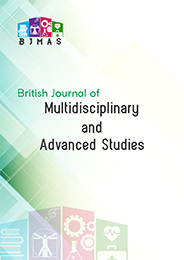Girl Child Education: A Means of Achieving the Sustainable Development Goals (SDGs) In Nigeria
DOI:
https://doi.org/10.37745/04958Abstract
This study examined the extent to which girl child-education can facilitate the achievement of Sustainable Development Goals (SDGs) in Nigeria. The study adopted a descriptive survey design. The sample of the study comprised of 245 senior secondary school girls respondents randomly selected from three states in Nigeria. The instrument which was validated by three experts in measurement and evaluation was used to elicit information from the participants. Having tested the reliability of the instrument, a coefficient of 0.82 was obtained. Data collected were analysed using means ratings and cumulative mean scores. Results revealed that forced marriage, sexual harassment, unwanted pregnancy, poverty, and negative self-concept are possible factors that militate against effective girl-child education in Nigeria. The study also revealed that girl-child education could to a very large extent promote women empowerment in Nigeria and that educating the girl child could be a strong factor that can facilitate the achievement of Sustainable Development Goals (SDGs) in Nigeria. It was, therefore, recommended among others, that the three tiers of government should ensure that policies meant to foster equal access to formal education for both genders are not only formulated but politically backed up.












